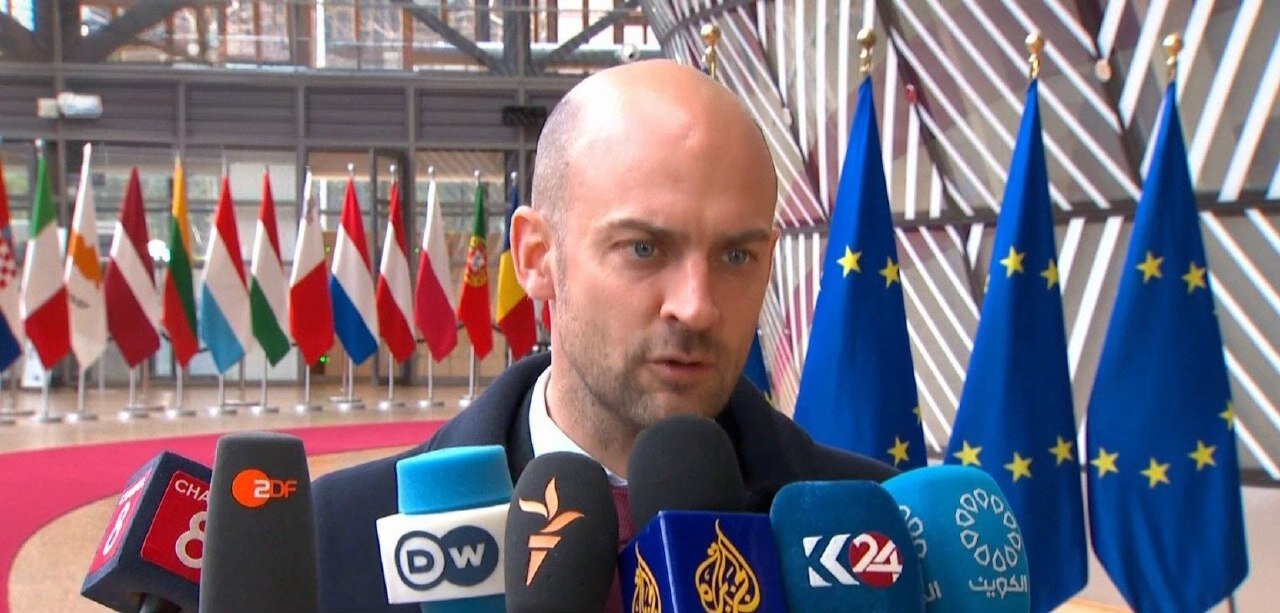France drives snapback threat, jeopardizing Europe’s future role on Iran

TEHRAN – France, the United Kingdom, and Germany have threatened to trigger the UN snapback mechanism against Iran by the end of August unless "substantial progress" is made in restoring the nuclear deal, French Foreign Minister Jean-Noel Barrot declared on Tuesday.
Speaking in Brussels ahead of an EU foreign ministers’ meeting, Barrot claimed: “France and its partners are justified in reapplying global embargoes on arms, banks, and nuclear equipment. Without a firm, tangible, and verifiable commitment from Iran, we will do so by the end of August at the latest.”
The snapback clause, embedded in UN Security Council Resolution 2231 (2015), allows any participant of the Joint Comprehensive Plan of Action (JCPOA) to unilaterally reimpose all pre-2015 UN sanctions on Iran if it is deemed “non-compliant.”
The process requires only a formal letter to the Security Council, followed by a 30-day window during which sanctions automatically revert unless a resolution blocks it.
Iranian officials have repeatedly condemned the threat as legally baseless and politically motivated.
Foreign Ministry Spokesman Esmaeil Baqaei stressed that the U.S. and the Israeli regime’s 12-day war on Iran, which illegally targeted and damaged Iran’s nuclear facilities, fundamentally undermined the snapback’s rationale.
“Resorting to this mechanism lacks any legal, political, or moral justification,” he noted, adding that European breaches of the JCPOA further disqualify them from invoking its provisions.
Foreign Minister Abbas Araghchi delivered a starker warning: Activating snapback would irreversibly end Europe’s role in Iran’s nuclear dossier.
“If European countries proceed [with the mechanism], resolving Iran’s nuclear case will become far more complex,” he stated, emphasizing that diplomacy requires neutrality, not threats.
He also questioned Europe’s credibility in an interview with Le Monde: “How can Iran be asked to abide by the rules when Europe refuses to condemn Israeli aggression?”
Deputy Foreign Minister Kazem Gharibabadi has hinted at more drastic measures, noting Iran has suspended all cooperation with the IAEA and suggesting withdrawal from the Nuclear Non-Proliferation Treaty (NPT) remains an option.
European bad faith and erosion of diplomacy
The snapback threat follows the Israeli regime’s U.S.-backed attacks on Iran, which killed nuclear scientists and targeted civilian nuclear facilities.
Western silence during these assaults—and German Chancellor Friedrich Merz’s description of them as “dirty work” done by proxy—exposed, in Tehran’s view, the IAEA’s politicization and Europe’s bad faith.
Critically, Iran argues Europe forfeited its JCPOA rights by consistently violating its commitments following Washington’s exit from the deal under Donald Trump’s first term:
- The INSTEX trade mechanism failed spectacularly, processing only minor medical transactions.
- European companies (e.g., Total, Siemens) abandoned Iran under U.S. pressure.
- Oil exports to Europe plummeted from 2.5 million to under 400,000 barrels daily post-2018.
Many in Iran believe Europe has lost its credibility on the nuclear deal. They argue that not only did European countries fail to compensate Iran for the losses caused by U.S. sanctions, but they also enabled attacks on Iranian soil, violating commitments and undermining trust.
From this view, Europe and its allies have made the deal irrelevant and have no right to demand full compliance from Iran.
Additionally, snapback would annihilate diplomatic channels.
Reactivating pre-2015 sanctions would revive six UN resolutions, including an arms embargo and asset freezes—measures Iran dismisses as “redundant” after years of surviving maximum pressure.
More consequentially, it could push Tehran toward NPT withdrawal, freeing it from IAEA inspections and non-proliferation obligations.
As Iran’s top diplomat Araghchi has cautioned, Europe faces a choice: “Constructive role or provocation.” Choosing the latter, he warned, would render the E3 irrelevant in West Asia’s most volatile crisis.
With the October expiration of Resolution 2231 looming, the E3’s August deadline may decide whether diplomacy lives—or becomes collateral damage in a manufactured crisis.
Leave a Comment